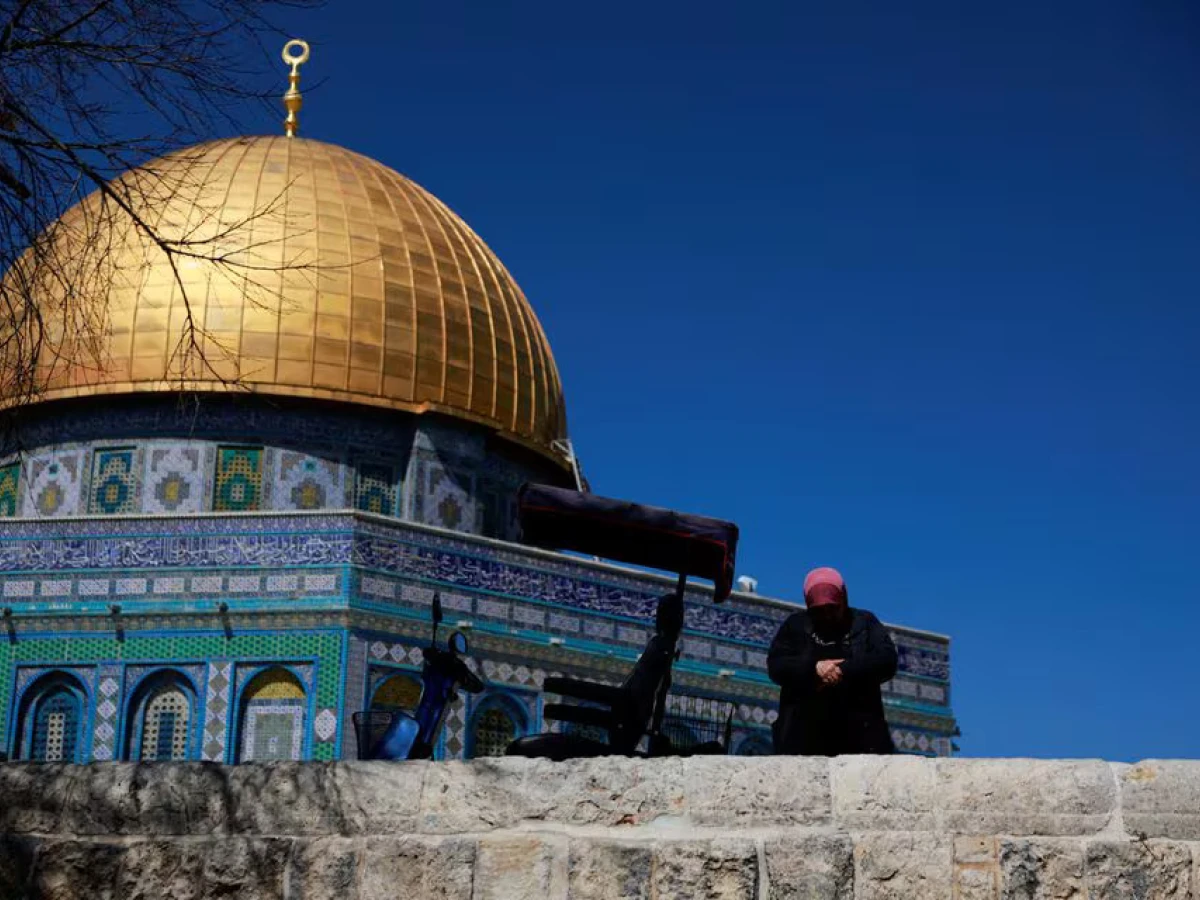
Israel to allow same numbers into Al-Aqsa during start of Ramadan as in previous years
Israel captured the site in the 1967 Middle East war and illegally annexed it with the rest of East Jerusalem.
JERUSALEM, March 5 (Reuters) - Israel will allow a similar number of worshippers into Jerusalem's Al-Aqsa mosque compound in the first week of Ramadan as in previous years, a statement by Prime Minister Benjamin Netanyahu's office said on Tuesday, without specifying a number.
With war raging in Gaza, Israel said it may limit access to the holy site during the Muslim fasting month, citing security needs. Many Palestinians reject any such restrictions.
Al-Aqsa, one of the holiest sites in the world for Muslims, sits on a hilltop in Jerusalem's Old City in a compound also revered by Jews as a vestige of their two ancient temples.
Israel captured the site in the 1967 Middle East war and illegally annexed it with the rest of East Jerusalem, which Palestinians want as the capital of an independent state.
Israeli police raids, visits by Jewish officials and restrictions on Palestinian access to the site have been a source of friction in the past, particularly during holidays including Ramadan, which begins this year on or around March 10.
Tuesday's decision came in agreement with top Israeli security officials during a meeting on preparations ahead of Ramadan, the statement said.
"During the first week of Ramadan, the entry of worshippers to the Temple Mount will be permitted, similar to the numbers in previous years," it said, using the Jewish name for the site. "A weekly assessment of the security and safety aspects will be held; a decision will be made accordingly."
Earlier on Tuesday, Netanyahu said freedom of worship on the site would be ensured during Ramadan while taking Israel's security needs into consideration.
In Muslim tradition, it is from the Al-Aqsa compound that the Prophet Mohammad ascended to heaven, and tens of thousands of Muslims usually visit the mosque every day during Ramadan.
Israel has long limited access to Al Aqsa for younger Muslims and Palestinians from the occupied West Bank. Since the start of the war in Gaza in October, it has imposed extra restrictions on Palestinian citizens of Israel and residents of Jerusalem, citing security reasons, forcing hundreds to perform Friday prayers in the streets.




